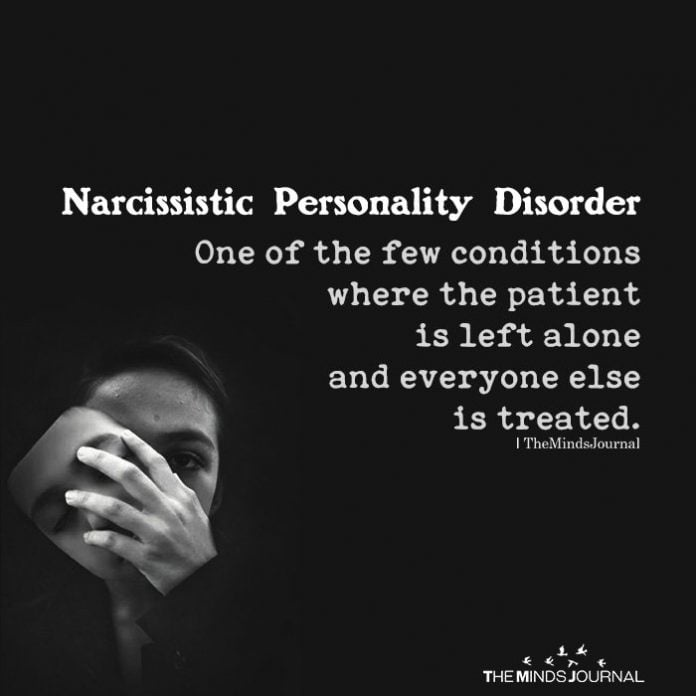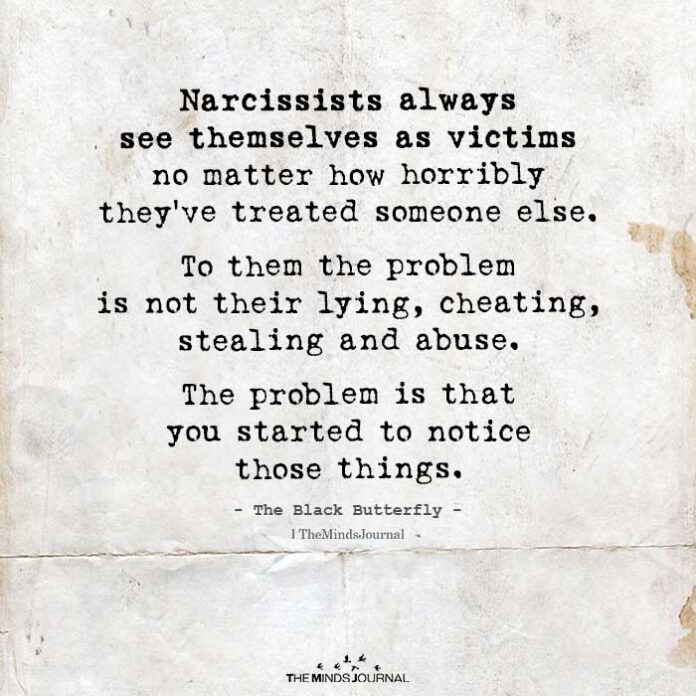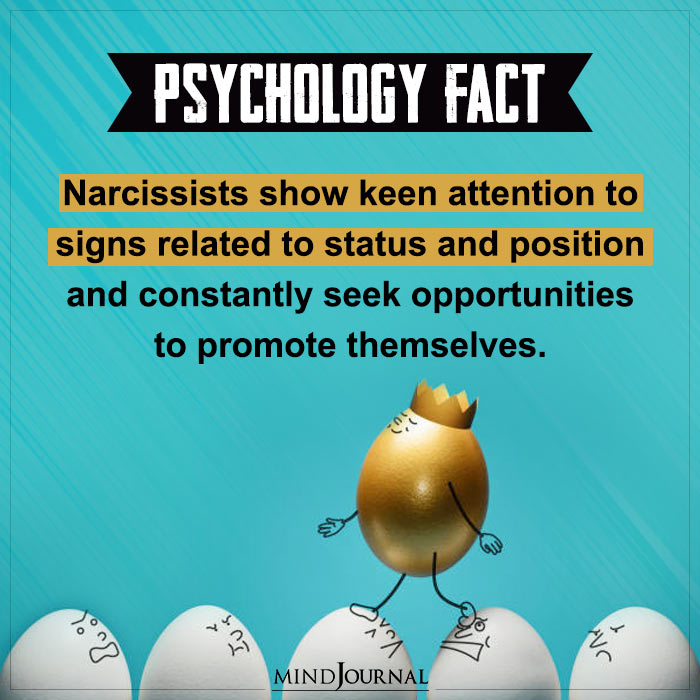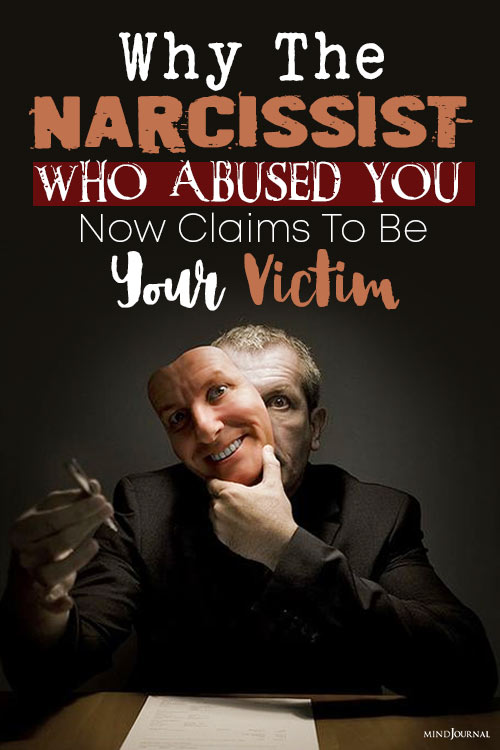Narcissists thrive on others’ admiration and that is why they try to gain either empathy or the sympathy of others. If they cannot be the hero in anyone’s life, the narcissist plays the victim of others’ abuse. This is one of the best narcissistic manipulation tactics they use. Learn more about the narcissistic victim mentality.
Written By Dr. Elinor Greenberg
KEY POINTS:
- Narcissism can be viewed as a self-esteem regulation disorder plus a lack of emotional empathy.
- Narcissists twist the truth to present themselves as either heroes or innocent victims of other people’s malice.
- Narcissists lack whole object relations, which means they can only see themselves as perfect or worthless.
- If narcissists cannot be your hero, they may claim to be your victim.
A simple way of understanding narcissistic personality disorder is to view it as a self-esteem regulation disorder plus a lack of emotional empathy. Most of what narcissists do that hurt other people are actually attempting to manage their shaky self-esteem.

Narcissists live in their own emotional world where their need to feel special and be validated by other people takes precedence over anything and anybody else.
While many narcissists appear to be extremely confident, this is a very thin façade that is easily disrupted. Narcissists are not as self-sufficient as they may seem. They need other people to validate them as special or else they feel insecure.
Related: How Do Narcissists Think And Work?
In this way, they are a bit like an outdoor thermometer. The thermometer itself does not control whether the mercury inside goes up or down.
The mercury is responding to conditions around the thermometer—going up in response to heat and down in response to cold. The narcissist’s self-esteem goes up in response to praise and down in response to being ignored or feeling disrespected.
Note: I am using the terms narcissist, narcissistic, and NPD as a shorthand way to refer to people who qualify for a diagnosis of narcissistic personality disorder.
Split Narcissists Lack Whole Object Relations
From an object relations theoretical point of view, all people with personality disorders lack whole object relations (WOR). This lack of whole object relations means that they can only see themselves and other people as either all-good or all-bad.
They cannot form an integrated, stable, and realistic picture of people that simultaneously includes both liked and disliked qualities. This is also called “splitting” or black-and-white thinking with no shades of gray. Each of the different personality disorders has a different definition of all-good and all-bad. In the narcissistic type of splitting:
- All-Good = Special, perfect, omnipotent, admirable, high status, idealizable, and entitled to special treatment.
- All-Bad = Worthless, flawed, inadequate, average, wrong, and entitled to nothing.
This leads people with NPD to be hyper-focused on projecting an image that they feel is admirable and blameless. It also leads to them devaluing other people and not taking responsibility for their share of failures and faults.
Read: But Why Did the Narcissist Do That?
Why Narcissist Plays The Victim And Hero?
The Hero:
In myth, fairytales, action movies, and news stories, there are heroes who—through strength, bravery, cleverness, toughness, and persistence—save everyone else. The heroes in these stories are usually the main character and the focus of everyone’s admiring and grateful attention.
It is easy to see the overlap between the concept of the hero and the narcissist’s version of the all-good side of the split into special vs. worthless.
The Victim:

By definition, victims are not to blame for their situation. If they fail in some area, it is because someone else had it in for them or is taking advantage of them. The essence of embracing victimhood is embracing the idea that every bad thing that happens to you is actually someone else’s fault.
Of course, there are real victims in life who suffer greatly at the hands of other people. Many narcissists were the victims of some form of bad parenting. However, that is in the past.
Now when people with NPD claim to be victims, they are usually twisting the truth to suit their narrative that they are always in the right. In fact, many narcissists claim to be the innocent victim of a person who is actually their victim—someone they have been abusing. Narcissists can convince themselves of almost anything if it protects their self-esteem.

To understand why someone who wants to be seen as perfect and special would embrace the notion that they are a victim, we have to go back to the all-good vs. all-bad split thinking. It is easy to see how the hero can be viewed as perfect, but the victim can be seen as flawless, too.
This is a bit like the old Superman comic books and movies. Superman is clearly a hero who devotes his life to saving people, but when some villain exposes him to kryptonite, he becomes weak. The hero temporarily becomes the victim.
Heroes are viewed as special because they are recognized as having highly desirable qualities. Victims are viewed as blameless. This means that when people with NPD have any form of success, they can see themselves as heroes. This validates their all-good self-image as better than other people.
However, if they have a failure, they can still feel perfect and preserve their sense of being all-good by embracing the idea that their failure is someone else’s fault. They are the blameless victim. Someone else is purposely harming them or thwarting them. You, their victim, are reframed as kryptonite.
Read: How To Identify A Narcissist: 9 Common Traits of Narcissism
Summary

People with narcissistic personality disorder need to see themselves as perfect and superior to other people to feel good about themselves. They have no middle ground. Average is an insult to a narcissist.
In their mind, they are either perfect and special or defective and worthless. As no one is perfect, narcissists have to twist the truth when they make a mistake.
Their first line of defense is usually to blame someone else for the error and not take responsibility for their own behavior. One of the ways that they rationalize this is by ignoring their own prior behavior that gave rise to their problems and instead claiming to be the innocent victim of someone else’s malice.
Presenting themselves as a victim has the added benefit of letting them brag about their martyr-like status. A martyr is just another type of hero.
Written By Dr. Elinor Greenberg Originally Appeared On Psychology Today
Frequently Asked Questions
What problems may arise when two narcissists marry each other?
Most relationships between two narcissists are doomed to fail. Even if they marry, the marriage will be a dysfunctional and unhappy one. Such marriages mostly end in divorce.
What does a depressed narcissist look like?
When narcissists receive criticism from someone, especially who has been a long-term narcissistic supply, they react with depression due to the collapse of their fragile ego.
Who are some famous successful narcissists?
Although narcissism can be diagnosed only by a professional medical practitioner, personalities like Adolph Hitler, Napoleon Bonaparte, and Henry VIII showed narcissistic traits.
What are the neglectful narcissist traits?
Narcissists who keep to themselves, do not like to interact with people, and only reach out when they are in need of something, exhibit neglectful narcissistic traits.











Leave a Reply